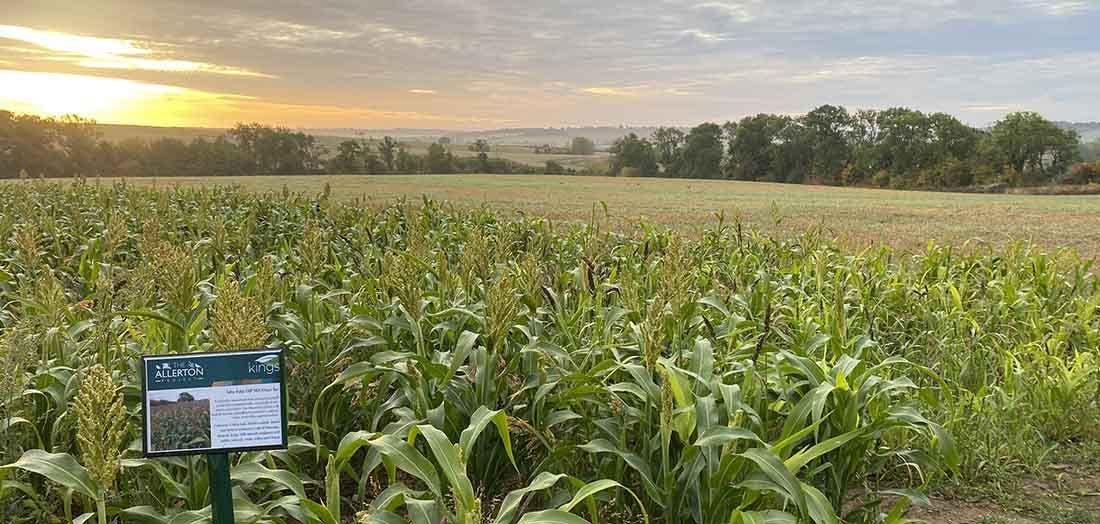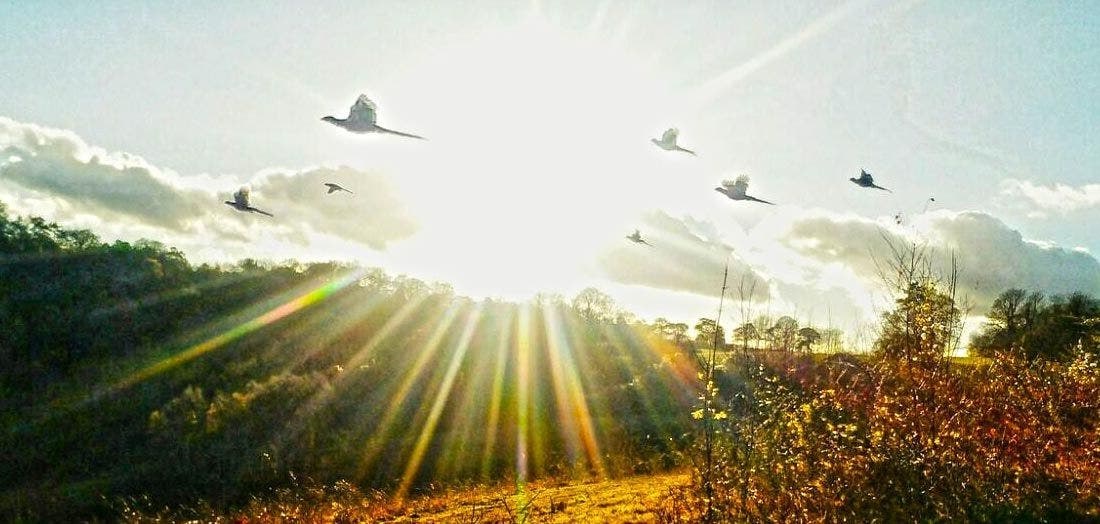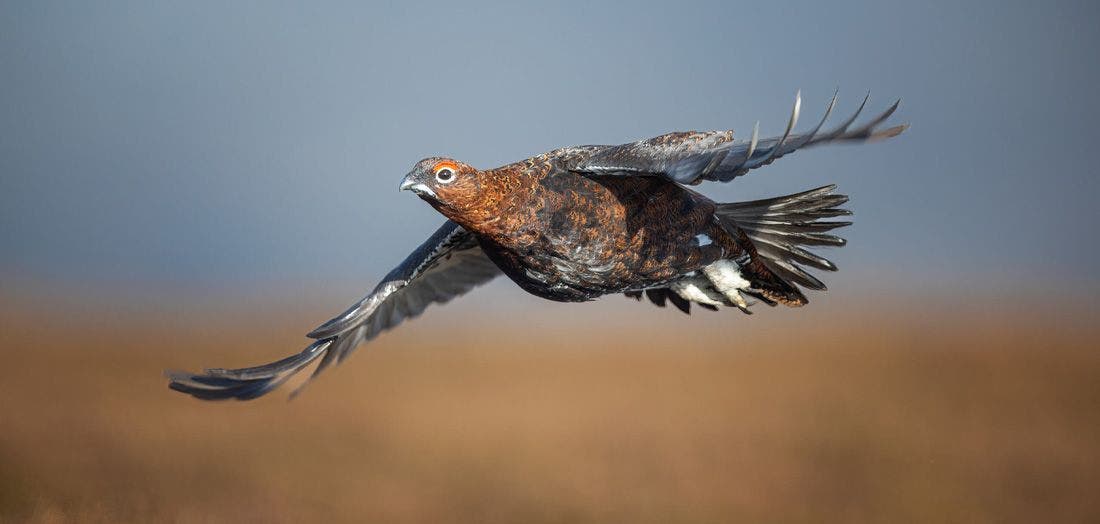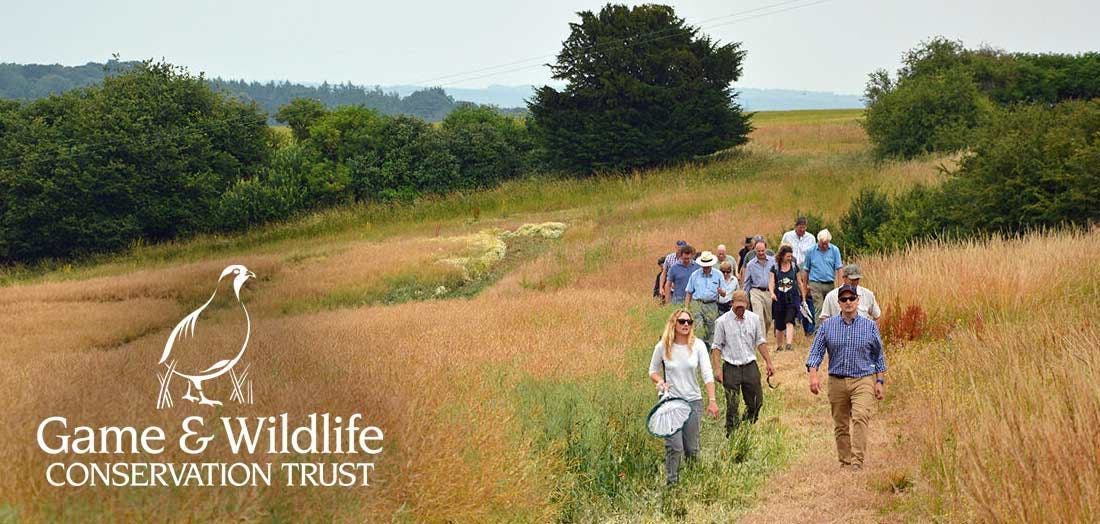Jemma Clifford, Partnerships and Communications Manager at The GWCT Allerton Project, presents a case study on this sustainable game release program which resulted in net positive environmental impact.
THE GWCT ALLERTON PROJECT
A UNIQUE RESEARCH OPPORTUNITY
The GWCT Allerton project is a demonstration farm based in Loddington, Leicestershire (picture above: crop cover at Loddington). The estate extends over 320 hectares and for more than 30 years has been at the cutting edge of research into sustainable farming methods, biodiversity, habitat creation, and rural landscape management.
The estate was kindly gifted to the GWCT by Lord and Lady Allerton in 1992 on the understanding that it would be used to conduct research into sustainable farming, game, and landscape management. The opportunity, in terms of running a sustainable shoot alongside a commercial farming operation, was unique – we would have the ability to conduct research into the effect of implementing and withdrawing some of the key activities undertaken by the shoot and measure the environmental impacts on both sides.
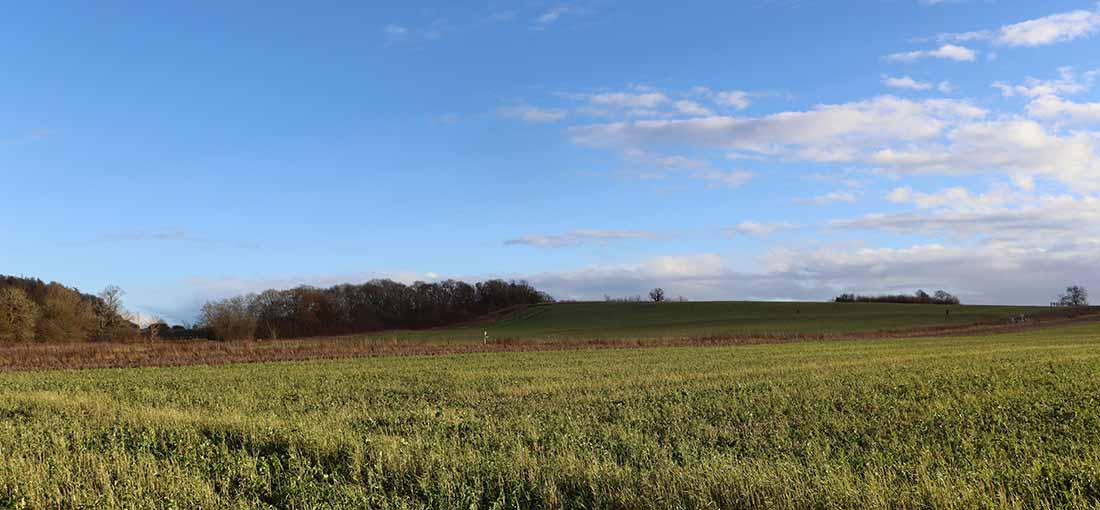

SONGBIRD INCREASE WITH GAME MANAGEMENT
The shoot is of a size and type that is typical of other pheasant shoots and is compatible with our objectives for the farm and wider environment. In the first eight years of game management, from 1992-2000, songbird abundance increased by 102%. Despite songbird numbers rising so successfully in response to game management, they showed a gradual decline once feeding and predator control were stopped, falling to just 30% above the 1992 baseline by 2011. Once we examined the effect of withdrawing predator control and subsequently withdrawing winter feed provision through hopper feeding, we re-employed a gamekeeper in 2011.
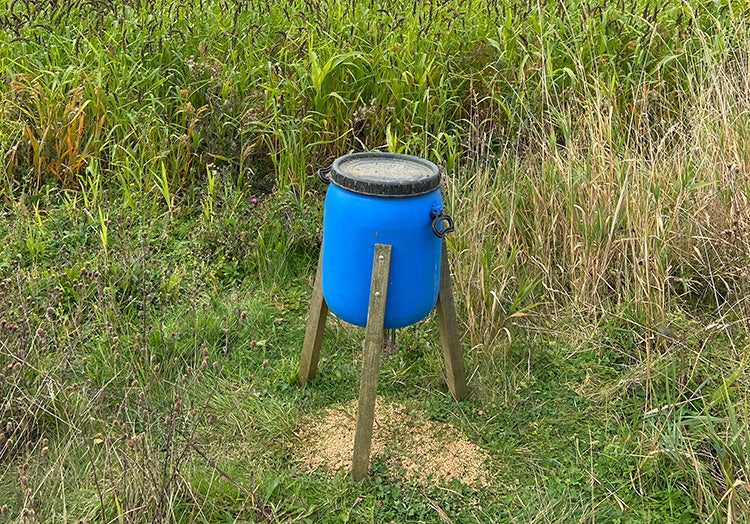

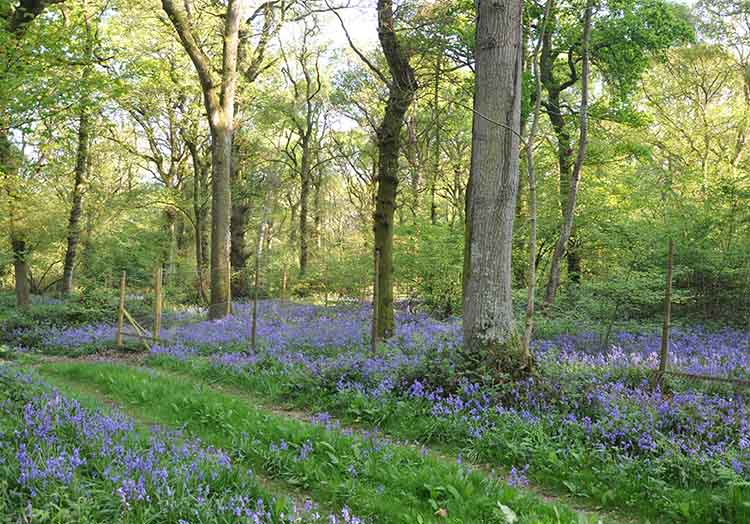

BIODIVERSITY NET GAIN
The Game & Wildlife Conservation Trust promotes best practice game management as a force for good for nature conservation and environmental improvement on farmland, woodland, moorland, and wetland. By establishing these principles, we promote best practice and sustainable game management that aims to deliver a net gain for biodiversity. Biodiversity net gain is a concept that is embedded in Defra’s 25 Year Environment Plan and is an approach to land use that leads to an increase in biodiversity.
The principles are designed to function and have relevance across a wide range of interest groups, from game managers and participants in game shooting, through to conservation organisations, Government, and the public.
Net Positive Environmental Impact
Three key areas in the success story of creating a net positive environmental impact at the Allerton Project were as follows:
SUSTAINABILITY
Game management provides an incentive to privately fund the creation, restoration, and management of habitats across large areas of the countryside specifically for wildlife – something which is usually only incidental to other forms of land use such as forestry or farming. However, as we move into a new era of farming, change is upon us, with gamekeepers and farm managers working more closely than ever before.
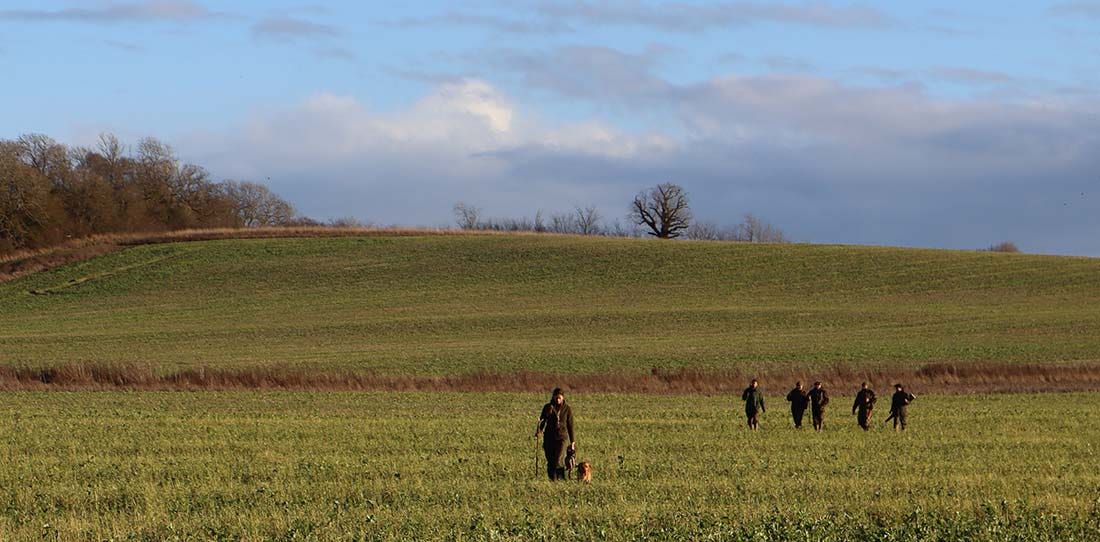

WILDLIFE
Appropriate habitat creation, management, and sometimes restoration is needed for all gamebirds. Maintaining this critical and appropriate diversity of habitats here was crucial over time as we restored and managed woodlands, hedgerows, field margins, game cover crops, and introduced wild bird seed mixes to support gamebirds. Predation control and supplementary feeding, whilst crucial to game management, also hugely benefited a wide range of other wildlife on the farm.
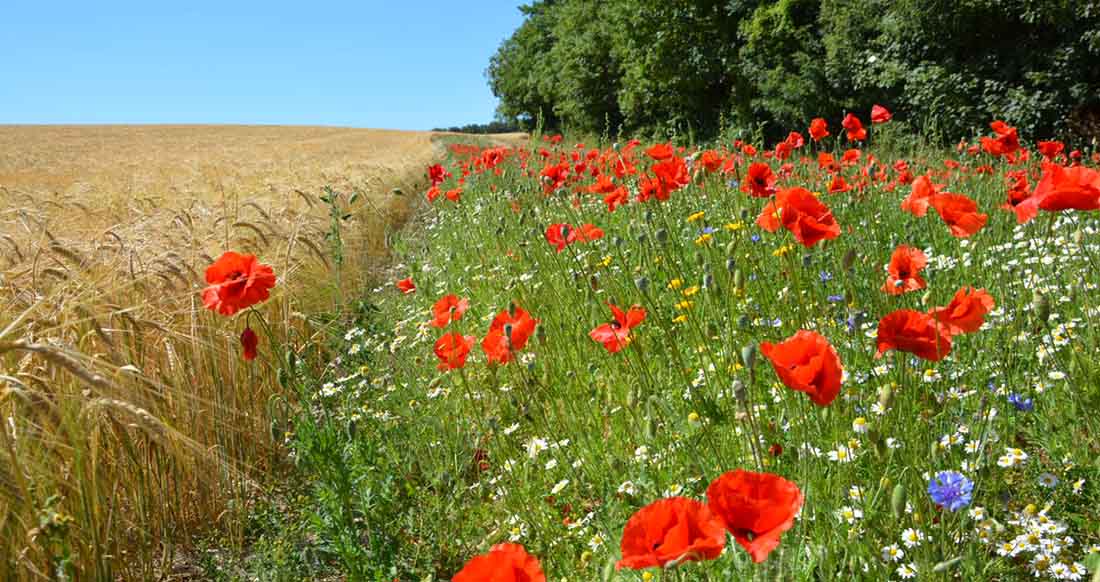

DENSITIES
Gamebirds are only ever released at densities appropriate to our own local circumstances, ensuring a net environmental gain from undertaking such activity.
All shoots, whether based on wild gamebirds, released gamebirds, or a combination of both, should strive to achieve a net biodiversity gain on their land. We have achieved this by applying the “The GWCT’s Principles of Sustainable Game Management” which in turn together with overall good practice, has led to the shoot here passing the Aim to Sustain (A2S) Game Assurance scheme with flying colours. These standards include assessment of animal health and welfare, food quality, environmental enhancement and protection, appropriate stocking levels, staff training, and health and safety.
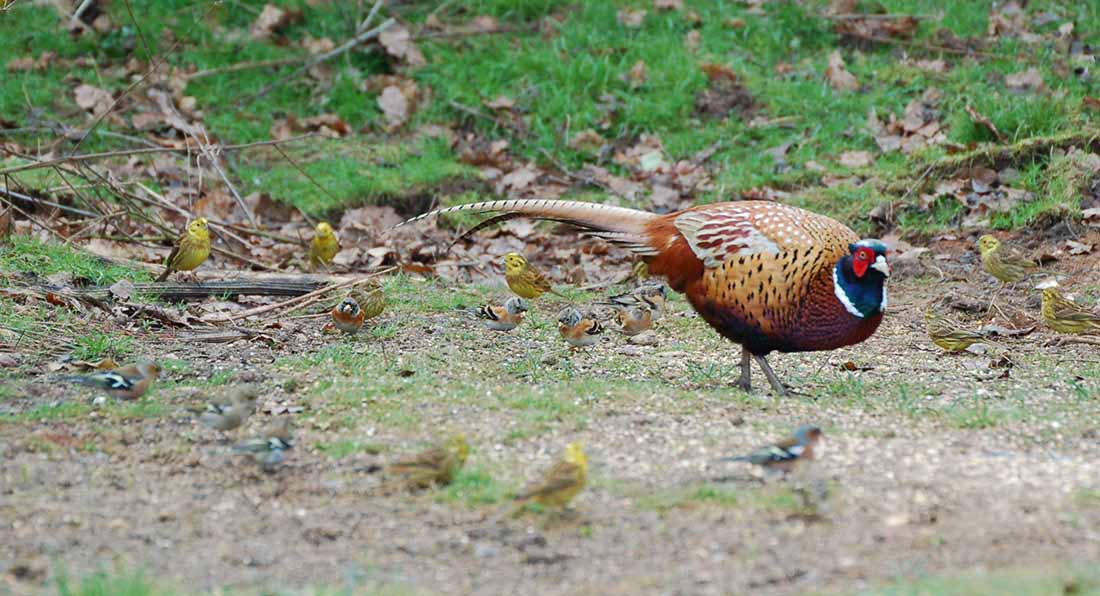

You can learn more about the principles of game management, access tolls to measure biodiversity on your shoot, or access key resources on our website www.gwct.or.uk. To learn more about the wider research and training available at The GWCT Allerton Project visit us here www.allertontrust.org.uk


